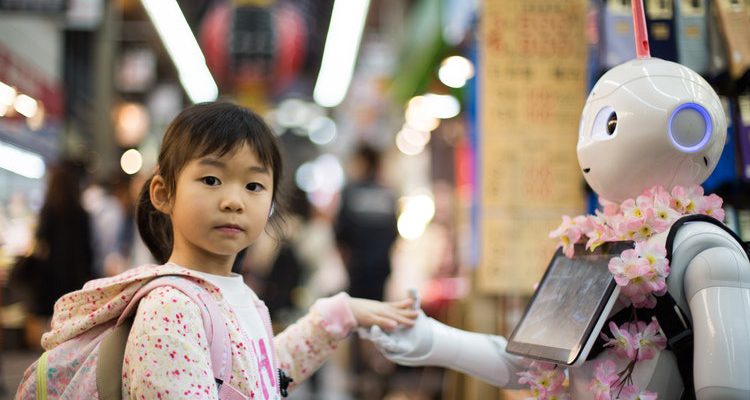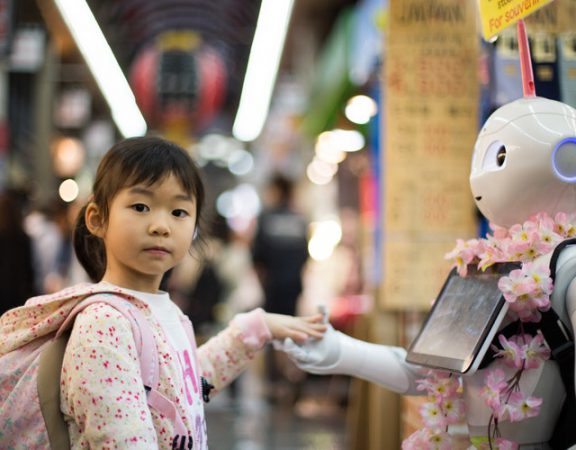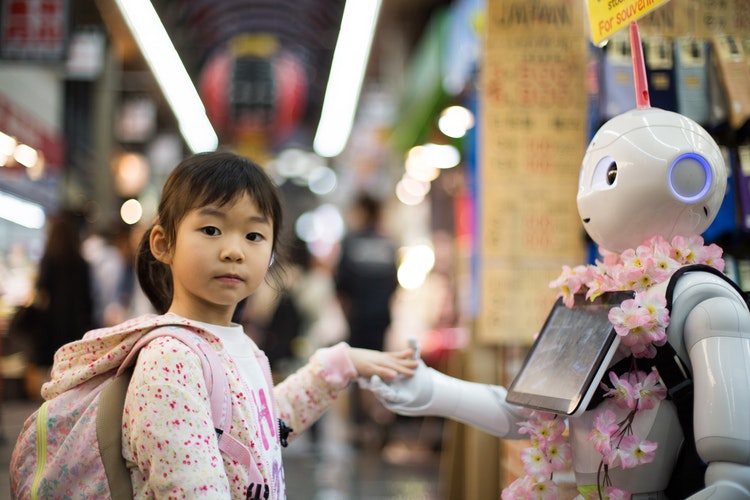

Skills for digital work in the future

Robots are evolving extremely fast, technology these days is developing almost daily and machines can more and more cope with sophisticated tasks, they can solve more problems and faster, so it’s only logical to think that us humans should also perfect other skills to meet future work demands.
But although it is true that, as we said, machines can already do more human-like activities, there will always be a differential factor, and that is where we should focus on. Machines will need to have some human support and supervision no matter what, and those might be the jobs of the future for us.
During the Digital Future of Work Summit in New York last year, a group of members from the academia and business discussed those future jobs and the skills that young people should develop to prepare for that future interaction with robots in all areas of their lives.
But robots are not the only thing that will change the future of our work scene, extreme longevity, new communication tools that will require media literacies beyond text, or a globally connected world, are also big factors that are changing the world as we now it.
It is obvious that the time in which we could study a degree and then get a job for the rest of our lives is over. Now we all must assume that technology is always going to be involved in our lives no matter what, which means that we will have to keep learning for ever, updating ourselves in all technological aspects. That is why most likely the careers path chosen when we are 18 won’t matter as much. As the professional world is becoming less and less structured and more flexible and changing, what will define our future is our adaptability, and that itself is a huge change.
So, what should we start working on? How do we become necessary as professionals?
Skills for digital work in the future
-
Sense making.
Definitely what mostly differentiates us from machines: the ability to determine the deeper meaning or significance of what is being expressed in a work situation. While robots will be able to put every decision to be made through all the filters they will be programmed for, humans can have that sensitivity and some extra knowledge that will still be necessary to supervise machines procedures.
-
Social Intelligence
Empathy. Connecting to others in a deep and direct way, to sense and stimulate reactions and desired interactions. This will be key for selling products, ideas and projects. Being good at interacting with other people is something that a human should always be better at than a robot.
This social intelligence also requires us to be able to operate in different cultural senses. That is when the globally connected reality comes into play and should shine. In the future will be more important than ever to get out of our cultural, and social bubble to keep in mind everyone’s cultural backgrounds and circumstances before we make a decision.
-
Novel and adaptive thinking
This means we should be able to develop a proficiency at thinking at coming up with solutions and responses beyond what is rule-based. It’s that ability to mix plan b, c, d and e to come up with an idea that saves the day.
We should also be very good at discriminating and filtering information for importance, and making sure we maximize any cognitive functions.
-
Virtual Collaboration
The days of working at an office with all your coworkers there are coming to an end. The future calls for virtual collaboration, being able to work productively, drive engagement and still feel present for both your colleagues as well as for your clients.
Therefore we should be extremely good at keeping up with all the technological tools that can help us with to be 100% productive, as well as guaranteeing our ability to absorb all the data that we will receive from all the different members of the team, both human and technological.


